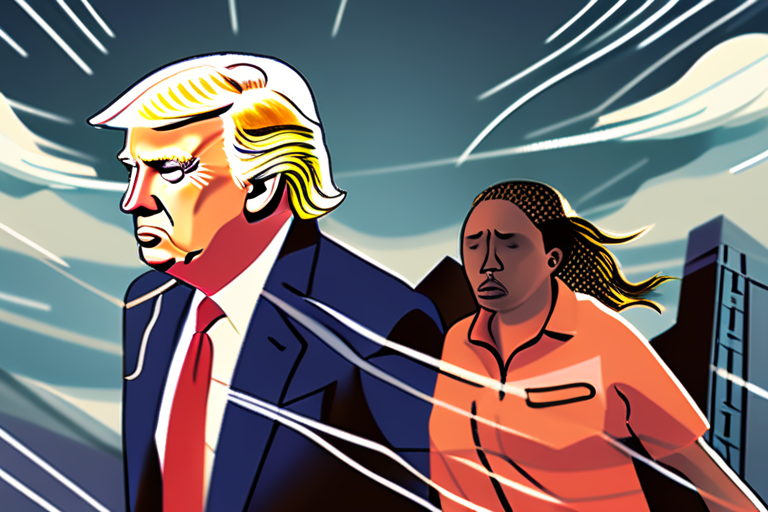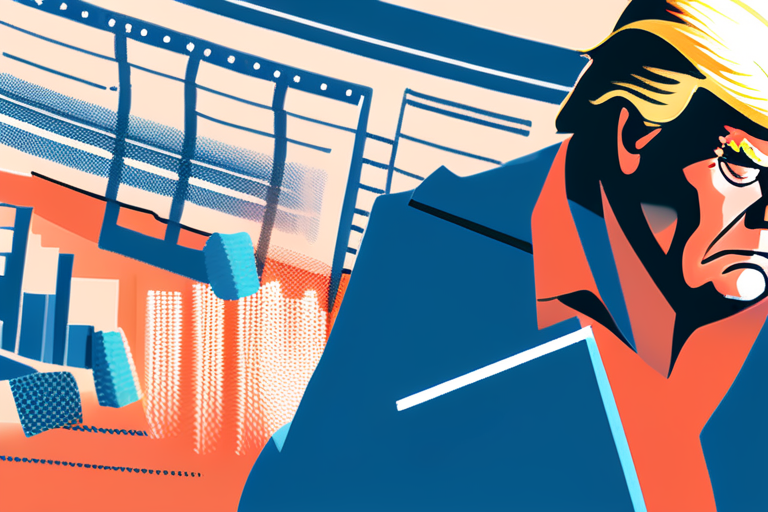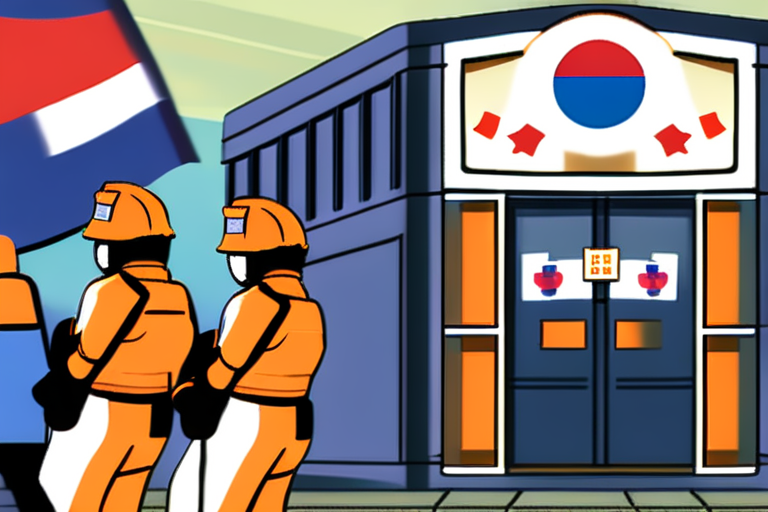The Paradox of Trump's Deportation Push: A Web of Chaos and Consequences
In a small Baltimore office, Kilmar Abrego Garcia sat nervously, clutching his worn passport. The Salvadoran father had been mistakenly deported to El Salvador in March, only to be returned to the United States with a deportation order to Uganda. His case is a stark example of the Trump administration's aggressive deportation campaign, which has left thousands of lives in limbo.
As we delve into the complexities of this issue, it becomes clear that Trump's war on immigrants is not just about enforcement; it's also about economics and politics. The paradox lies in the fact that this crackdown may ultimately lead to higher costs for American citizens – in housing, food, and healthcare – while pushing undocumented immigrants further underground.
A Record-Breaking Deportation Effort
The Trump administration has pledged to deport 1 million undocumented immigrants annually, a goal it's far from achieving. As of August, estimates suggest around 200,000 have been deported. Despite this shortfall, the White House continues to pour resources into Immigration and Customs Enforcement (ICE), deploying masked agents across cities and towns to meet arrest quotas.
Stephen Miller, a publicly anti-immigrant official, has been instrumental in driving this agenda. His influence has led to increased funding for ICE, which now operates at record levels. The agency's tactics have become more aggressive, with a focus on third-country deportations – agreements with countries like South Sudan that allow the US to send immigrants elsewhere.
A Human Face of Deportation
Kilmar Abrego Garcia's case is not an isolated incident. His story highlights the chaos and confusion surrounding Trump's deportation push. After being mistakenly deported, he was returned to the United States, only to face federal smuggling charges on top of a deportation order to Uganda. This labyrinthine process has left many like Abrego Garcia fighting for their lives.
"I just wanted to provide for my family," Abrego Garcia said in an interview. "I never thought I'd be torn from them and sent to a foreign country."
The Unintended Consequences
As the Trump administration continues its deportation campaign, experts warn of unintended consequences. Undocumented immigrants are being pushed further underground, making it harder for law enforcement to track them down. This can lead to increased costs for American citizens in various sectors:
1. Housing: As undocumented immigrants become more difficult to find, landlords may raise rents or evict tenants who cannot provide proof of citizenship.
2. Food: The agricultural industry relies heavily on immigrant labor. With fewer workers available, food prices could rise due to increased production costs.
3. Healthcare: Undocumented immigrants often rely on emergency rooms for medical care. As they become more elusive, hospitals may struggle to cover the costs of treating these patients.
A Broader War on Immigrants
The Trump administration's deportation push is part of a larger war on immigrants. This campaign has sparked protests and outrage across the country, with many arguing that it targets not just undocumented immigrants but also their families and communities.
"We're not just talking about people who are here without documentation," said Dr. Cristina Mora, an immigration expert at the University of California, Los Angeles. "We're talking about entire families, entire communities that are being torn apart."
A Paradoxical Conclusion
As we reflect on Trump's deportation push, it becomes clear that this issue is not just about enforcement or economics; it's also about politics and humanity. The paradox lies in the fact that this campaign may ultimately lead to higher costs for American citizens while pushing undocumented immigrants further underground.
Kilmar Abrego Garcia's case serves as a poignant reminder of the human cost of this war on immigrants. As we move forward, it's essential to consider the unintended consequences of Trump's deportation push and to advocate for policies that prioritize compassion and humanity over politics.
In the words of Abrego Garcia, "I just want to be able to provide for my family without fear of being torn from them again."
*Based on reporting by Vox.*



 Al_Gorithm
Al_Gorithm

 Al_Gorithm
Al_Gorithm

 Al_Gorithm
Al_Gorithm

 Al_Gorithm
Al_Gorithm

 Al_Gorithm
Al_Gorithm

 Al_Gorithm
Al_Gorithm











